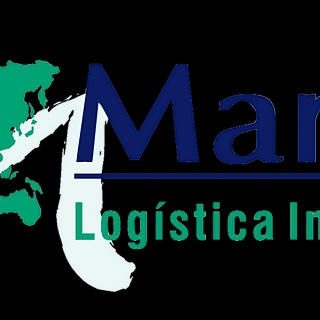How will AI help air and sea freight transportation?
- Martins Logística Internacional
- Nov 26, 2024
- 4 min read

Artificial Intelligence (AI) is transforming several sectors of the economy, and air and sea freight transport are no exception to this revolution. The application of AI-based technologies can bring a series of benefits to improve efficiency, reduce costs, optimize processes and increase safety in these areas. Let’s explore how AI can help each of these sectors:
Air Cargo Transportation
1. Route Optimization and Flight Planning
- AI algorithms can analyze large volumes of real-time data (such as weather conditions, air traffic, and historical route data) to optimize flight routes. This can help reduce travel time, save fuel, and minimize operating costs.
- Additionally, AI-powered flight planning can optimize aircraft allocation and flight schedules, ensuring cargo flights are more efficient and punctual.
2. Cargo Management and Storage
- AI can optimize aircraft loading by adjusting cargo placement to maximize space and ensure cargo safety. Machine learning algorithms can predict the best arrangement for different types of cargo.
- Sensor-based AI systems can monitor cargo condition in real time (temperature, humidity, vibration), alerting teams to potential issues.
3. Demand Forecasting and Logistics Planning
- AI can predict freight transportation demand based on historical data, market trends, and seasonal events, helping companies plan transportation capacity more efficiently.
- AI tools can also help improve inventory management by anticipating which products will be most in demand in a given region or time of year, facilitating logistics planning.
4. Process Automation and Load Planning
- The use of drones and autonomous robots to move small loads within terminals and airports is being increasingly explored. This reduces the need for human intervention and increases the efficiency and safety of operations.
- Autonomous cargo labeling and monitoring systems can be used to identify, track and organize packages, making the process faster and more accurate.
5. Predictive Maintenance
- AI can be used to implement predictive maintenance systems on cargo planes. Sensors and machine learning algorithms analyze flight and aircraft data, anticipating failures and enabling repairs before they become a serious problem. This reduces aircraft downtime and improves operational safety.
6. Tracking and Visibility
- AI, combined with technologies such as the Internet of Things (IoT) , can provide real-time tracking of each load, optimizing visibility and transparency of the logistics process, from collection to final delivery.
Maritime Cargo Transport
1. Route Optimization and Fuel Efficiency
- AI systems can analyze data on sea conditions, weather forecasts and ocean currents to optimize ship routes, helping to save fuel, reduce travel time and avoid risk areas.
- AI can also predict fuel efficiency in real time, adjusting operations to reduce costs and carbon emissions.
Autonomy and Autonomous Ships
- One of the most significant advances is the development of autonomous ships . These ships, powered by AI, can operate without the need for a crew on board. AI helps make real-time decisions for safe navigation, avoiding obstacles and adjusting the route as needed.
- AI enables communication between autonomous ships’ navigation systems and ground-based control centers, increasing safety and efficiency.
3. Cargo Tracking and Monitoring
- Just as in air transport, AI combined with IoT sensors can enable tracking of goods at sea, monitoring conditions such as temperature, humidity and excessive movement of cargo during transport. This is especially important for sensitive products such as perishable foods and medicines.
- AI algorithms can also predict potential load issues based on real-time and historical data, helping teams proactively take corrective action.
4. Optimization of Port Terminals and Container Management
- AI can help optimize port and terminal management by improving container allocation, cargo movement, and loading/unloading scheduling. This can reduce waiting times and increase vessel turnover at ports, reducing operating costs and improving efficiency.
- Port operations planning can be enhanced by AI to ensure operations run smoothly without delays.
5. Predictive Maintenance of Vessels
- Similar to the airline industry, cargo ships also benefit from AI-based predictive maintenance systems. The technology can predict when a ship component is likely to fail, allowing maintenance to be carried out before any operational disruption.
- Sensors installed on ships transmit real-time data on the operation of machines and systems, and AI processes this information to predict failures.
6. Risk Management and Security
- AI-based systems can analyze large volumes of data to identify risk patterns, such as adverse weather conditions or suspicious ship behavior, allowing security teams to take preventative action.
- AI can also analyze past incidents and provide recommendations to improve the safety of shipping operations.
Challenges and Considerations
Despite the enormous advantages of AI, its implementation in air and maritime transport faces some challenges:
1. Upfront Cost : Investing in new AI technologies, such as autonomous ships and predictive maintenance systems, requires a high upfront cost. Many companies may be reluctant to invest in these innovations without a guarantee of quick returns.
2. Regulation and Standards: The implementation of AI in transportation, especially in autonomous operations, still needs to adapt to international regulations. In some cases, laws and regulations may be outdated or do not adequately cover new technologies.
3. Technical Complexity: The use of AI involves a large amount of data and complex technical infrastructures, which requires specialized training and adaptation of operational teams.
4. Cybersecurity: Increased connectivity and the use of real-time data increase the risk of cyberattacks. Securing AI systems and freight transportation networks will be crucial to avoid security issues and data loss.
Conclusion
AI has immense potential to transform air and sea freight transport, making it more efficient , safer , cost-effective and sustainable . Technological innovations such as route optimization, predictive maintenance, autonomous ships and real-time tracking systems are just a few examples of how AI can revolutionize the global logistics industry. However, the transition to a fully automated and intelligent system will require time, significant investment and adaptation of current regulations and operational practices.
%20site%20(3).jpg)
%20site%20(.jpg)



Comments